Efforts against cholera in Burundi are reactive rather than preventive which makes the eradication of the epidemic impossible.
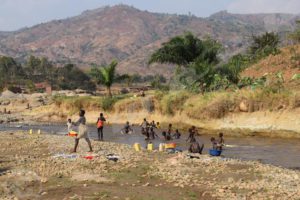
Permanent provision of clean water to areas where cholera is endemic is the best strategy to prevent the epidemic by preventing people to rely on rivers such as Mugere (pictured) abounding in vibrio cholerae viruses.
Cholera has affected more than 130 people in Rugombo, Cibitoke western province from 21 December 2016. Rugombo is the latest of the multiple occurrences of the epidemic that has been, from last July, sweeping across the coastline of Lake Tanganyika where it is endemic.
The epidemic has become predictable. Throughout the years, it has been consistently linked to the lack of clean drinking water and poor hygienic practices by residents of the littoral of the lake.
However, there is a remarkable lack of efforts aimed at the prevention of the disease. Much effort is deployed to control it. Even the provision of pure water, proper sanitation, food safety, and health education recommended by the WHO chiefly as preventive measures are often adopted in reaction to the outbreak of the vibrio cholerae-caused infectious disease.
Actors in the fight against the epidemic understand prevention is better than control, but they say a number of obstacles stand in the way.
“We understand prevention should be our priority”, says Alexis Manirambona, the spokesman for the Red Cross-Burundi, “but it requires investment we cannot fully afford”.
The Ministry of Public Health, through its spokesman Thaddée Ndikumana, says the population’s unchanging behaviour is the main obstacle. “Prevention is easy”, says the spokesman. “But the problem is with the people who don’t want to abandon their bad hygienic practices and adopt the healthy ones we teach them”.
Prevention possible through synergy
There is a convergence of views among actors that the eradication of cholera can only be achieved through cooperation between humanitarian actors, public authorities, and the population.
“We sensitize the public to good hygienic practices, but, for example, we cannot provide water for them or even make sure they follow the good health practices. That’s the work of the Interior Ministry”, says Antoine Ntemako, Director General of Disaster Risk Reduction National Platform.
Ntemako also emphasizes the role of media in raising the public awareness about the importance and the adoption of prevention practices.
Speaking on behalf of the Red Cross-Burundi, Manirakiza says “the prevention of cholera has to be a work of synergy between all those who are involved in the humanitarian cause”.
Vianney Ndayishimiye, Bujumbura Provincial Doctor, says such a synergy has been introduced in Kabezi, a health district where the epidemic is endemic. “We consistently sensitize the public to preventive practices. And the administration plans to supply sufficient clean water with the support of Oxfam”, he says
The health district of Kabezi was the first place where the ongoing epidemic first broke out on 27 July 2016. Over 200 people were admitted to the Kabezi cholera treatment centre .
The following areas to be struck by the epidemic were the Bujumbura Municipality, Nyanza-Lac (in the southern Province of Makamba), and Rumonge south-western province.
After more than a month with no new cases being reported anywhere in the country , the Minister of Public Health, Dr Josiane Nijimbere, had declared the end of the epidemic on 9 December 2016.Till then, the number of cases that had been registered was 362 of which two were fatal. But the disease reappeared in Rugombo, Cibitoke province, hardly two weeks later.
Despite all the obstacles to the prevention of the epidemic, the spokesman for the Ministry of Public Health praises the dedication of all those who help to control it so that the number of casualties nears zero.

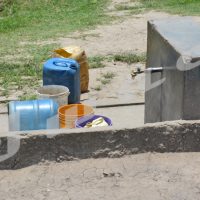
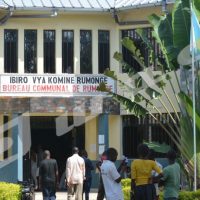
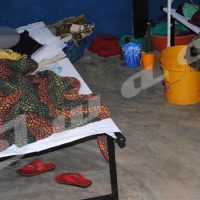
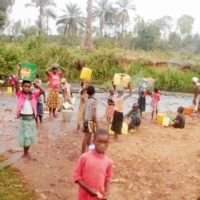
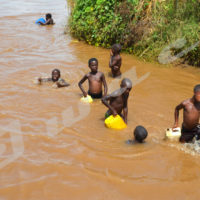













 IWACU Open Data
IWACU Open Data

